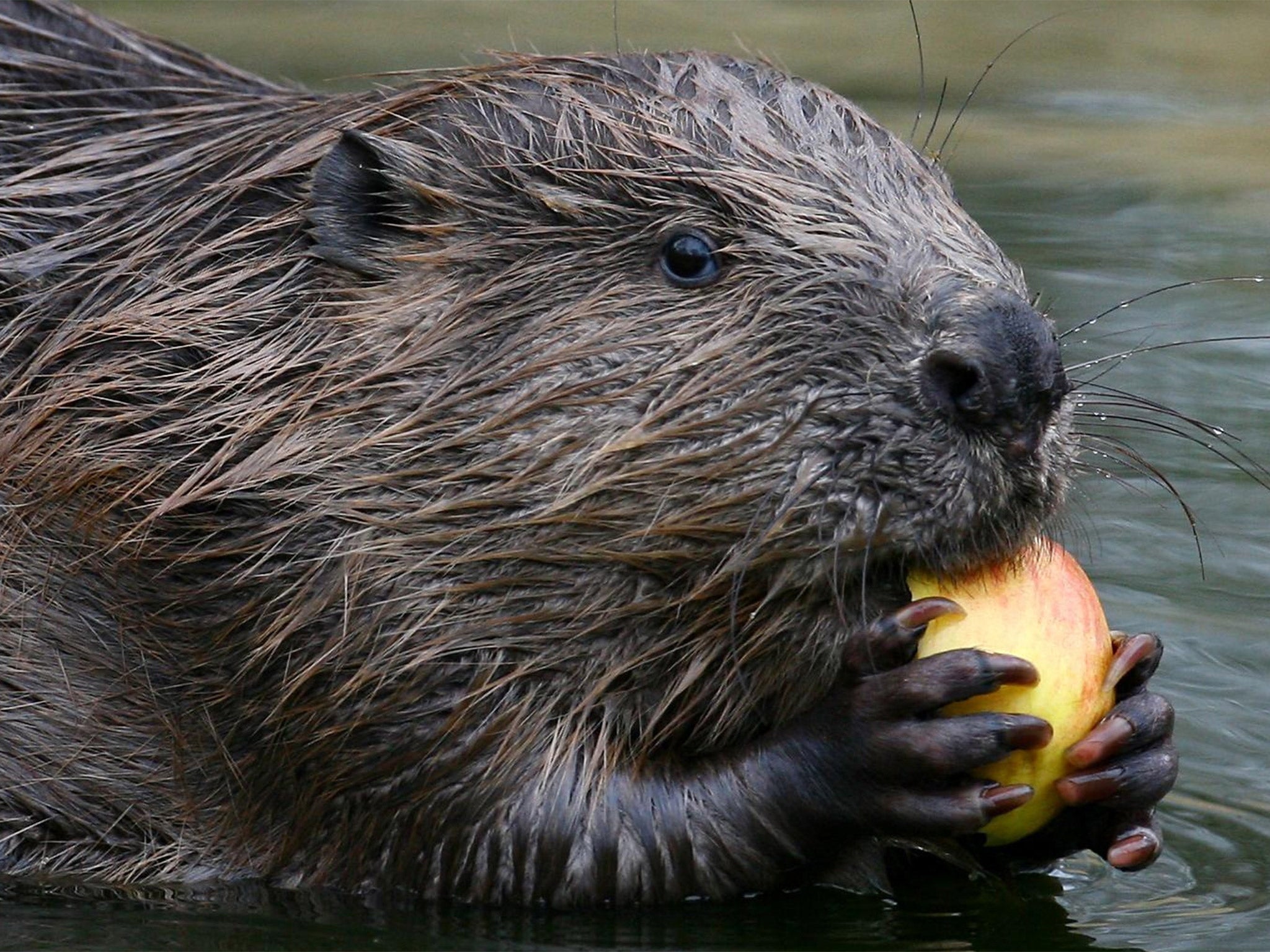Devon beavers can stay living in the wild, Natural England rules
First wild population of beavers for 500 years saved

Your support helps us to tell the story
From reproductive rights to climate change to Big Tech, The Independent is on the ground when the story is developing. Whether it's investigating the financials of Elon Musk's pro-Trump PAC or producing our latest documentary, 'The A Word', which shines a light on the American women fighting for reproductive rights, we know how important it is to parse out the facts from the messaging.
At such a critical moment in US history, we need reporters on the ground. Your donation allows us to keep sending journalists to speak to both sides of the story.
The Independent is trusted by Americans across the entire political spectrum. And unlike many other quality news outlets, we choose not to lock Americans out of our reporting and analysis with paywalls. We believe quality journalism should be available to everyone, paid for by those who can afford it.
Your support makes all the difference.England’s first population of wild beavers for 500 years has been saved from a future in captivity, thanks to a landmark decision by the government’s nature watchdog.
Conservationists had feared the small colony of beavers on the River Otter in Devon would end up in a zoo following plans to trap and test them for a rare parasite, but the decision by the Natural England to issue a license to “reintroduce” the endangered animals has open the door to their return to the river.
The family of beavers were first caught on film last February. However in the summer, the Department for Environment, Food and Rural Affairs (Defra) said it planned to trap the colony and transfer them to a zoo or wildlife park, arguing they are an invasive non-native species and could carry a rare parasite called Echinococcus Multilocularis (EM).
However a campaign by Friends of the Earth and Devon Wildlife Trust, which will now manage the animal’s reintroduction programme, argued that England forms part of the “natural range” of beavers and that removing them would be against EU laws governing protected species.
Friends of the Earth campaigner Alasdair Cameron, said: “This is great news for Devon’s beavers. If, as seems likely, they can now remain in the wild, it will be a major victory for common sense and everyone who has campaigned on their behalf.
“Beavers add to Britain’s rich natural heritage and can bring huge benefits to the local environment, such as boosting wildlife and reducing flooding risks.
“Thanks to the hard work of thousands of individuals and organisations, our number of native species just increased by one. The next stage is to get the beavers tested and then returned to the River Otter where they can now swim in peace.
“Hopefully we'll now see renewed efforts to reintroduce beavers to other suitable locations right across the country.”
The way is now open for officials at Defra to formally approve a five-year scientific study of the animals at a site near the village of Ottery St Mary, in a move that could open the way to their wider reintroduction of the once-common species across England. This would follow huge successes reintroducing the dam-building mammals in Scotland in recent years
Andrew Sells, Natural England’s chairman said: “Reintroduction of a species is a complicated and emotive subject and we have considered this application very carefully. Responses to our written consultation and public meetings have been generally positive and we are now satisfied with Devon Wildlife Trust’s plans for managing and monitoring the project, which will allow important evidence to be gathered during the trial on any impacts which the beavers may have.”
Sources close to ruling have suggested that the Defra handed decision-making powers to Natural England to save face, after initially suggesting that the animals would need to be moved to a zoo. The government was quick to say that it had no plans to cull the animals, but locals in Ottery St Mary feared any trapping of the animals for testing would led to their permanent removal from the river.
However before the trial can commence, the animals first need to be trapped and tested for EM by government vets. Mr Cameron added: “Catching them will be a very difficult enterprise and they could actually be harmed in the process unless it is done correctly by the right team of experts. We will be watching this very carefully and making sure that when they are released, that they really are wild. The danger is that they could be overly chaperoned or controlled.”
However the issuing of a license for the animals is a huge success to local campaigners, the Devon Wildlife Trust and Friends of the Earth, which has started legal action to halt earlier Defra plans to remove the animals from the wild.
Local councillor Claire Wright said: “It is absolutely brilliant news that the beavers will be allowed to remain on the Otter. Local people will be delighted – there is massive support for them. Monumental thanks for getting us to this point must go to Devon Wildlife Trust, which has worked tirelessly for months to make the case for them to stay. And Friends of The Earth, which threatened legal action if Defra removed the animals.”
Farmer David Lawrence, who owns the land where the animals are regularly spotted, said he was delighted by the decision. He said: “I have three film crews in my field at the moment, but it’s all passing the beavers by as they are pretty dormant this time of year. The most important thing is that now the Devon Wildlife Trust can study the beavers and in five years we can make an informed decision as to whether the beaver really can thrive and be healthy in England.”
Join our commenting forum
Join thought-provoking conversations, follow other Independent readers and see their replies
Comments